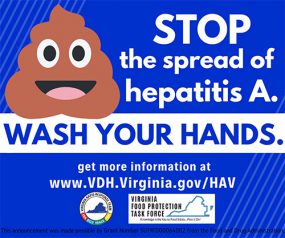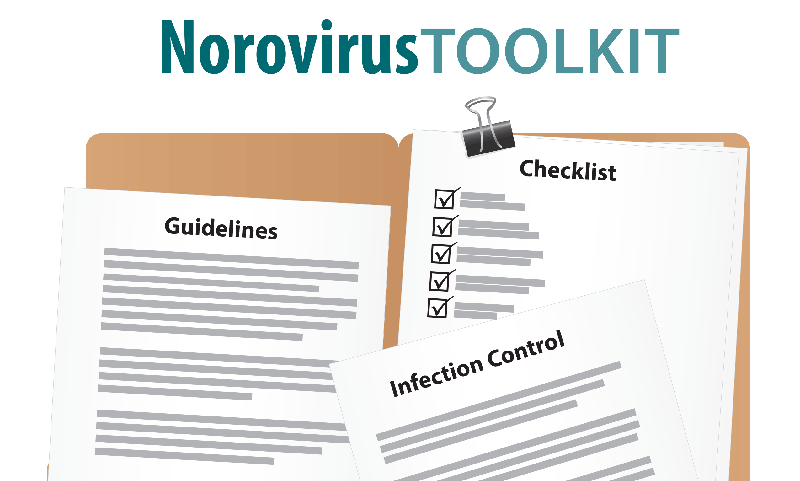OutbreakNet Enhanced Success Stories
These stories illustrate the work OutbreakNet Enhanced sites do to advance public health. Sites work to detect and respond to outbreaks, train professionals, strengthen health systems, and create programs that increase the safety of people’s food, water, and environment. Read about some of the specific ways sites do this below.

Collecting purchase information and retail sampling are two reliable methods for gathering exposure and laboratory data, but sometimes the only way to solve an enteric disease outbreak is to look in a case-patient’s freezer. That’s exactly what the Michigan OutbreakNet Enhanced (OBNE) site had to do in the fall of 2022 in a multi-state outbreak of Shiga toxin-producing Escherichia coli (STEC).
Student Interviewers Build Capacity in Pennsylvania during COVID-19 Pandemic Response
Pennsylvania is the fifth most populous state in the country and sees a high volume of enteric disease cases and outbreaks. Ensuring that all affected persons are interviewed is challenging given the large volume of cases and dispersal of interviewing responsibilities over many jurisdictions within the state.
FoodCORE and OutbreakNet Enhanced: Leveraging Enhanced Capacity During the COVID-19 Pandemic
During the COVID-19 pandemic, public health staff were pulled from their regular job duties to support the unprecedented pandemic response. Like other health departments, Foodborne Diseases Centers for Outbreak Response Enhancement (FoodCORE) and OutbreakNet Enhanced (OBNE) sites were faced with the challenge of conducting routine enteric disease surveillance and outbreak response activities with fewer epidemiology, laboratory, and environmental health staff. FoodCORE and OBNE sites found innovative ways to maintain routine work during the pandemic by leveraging their enhanced capacity and adapting their workflows.
Thinking Outside the Box: OutbreakNet Enhanced Sites Get Creative with Public Health Messaging
Innovative public health messages can reach a larger population or a particular group as well as make the information more accessible and understandable.
Improving Outbreak Response Preparedness: Epi-Ready and the Value of In-State Trainings in Kentucky
Investigating and responding to enteric disease outbreaks is complex and responding early and engaging multidisciplinary teams improves outbreak response.
Student Teams Increase Capacity for Enteric Disease Interviews
OutbreakNet Enhanced sites including Indiana, Louisiana, Illinois, and Kentucky use student teams to assist with routine interviews of case-patients for Salmonella, Shiga toxin-producing Escherichia coli (STEC), Listeria, and other enteric diseases.
Virginia’s Collaborative Investigation Cracks the Case
OutbreakNet Enhanced site, Virginia, worked collaboratively across epidemiology, laboratory, environmental health, and agriculture partners to help identify the source of a reoccurring outbreak.
Rhode Island “Takes the Cake” with Collaborative Outbreak Investigation
The Rhode Island Department of Health epidemiology, laboratory, and environmental health teams worked collaboratively to tackle an unusual outbreak to prevent others from getting sick throughout the state.
California and Washington Craft Toolkits to Tackle Norovirus Outbreaks
Two OutbreakNet Enhanced sites, California and Washington, developed Norovirus Toolkits to give their local investigators the best information and tools to handle norovirus outbreaks in various settings.
Joint Assessments Improve Outbreak Response in Chicago
The Chicago Department of Public Health uses joint facility assessments to strengthen the relationship between epidemiology and environmental health, and to solve enteric disease outbreaks quicker.
Kansas Implements Centralized Interviewing Program
Working closely with their local health departments enabled Kansas to successfully implement centralized interviewing and improve their enteric disease surveillance and outbreak response activities.
Connecting and Empowering Enteric Disease Investigators throughout Arizona
Recognizing the opportunity to foster a community of highly trained investigators across the state, the Arizona Department of Health Services (ADHS) sought to unify and strengthen skills unique to enteric disease investigation through two initiatives.
Speedy Collaboration Leads to Successful Control of Massachusetts E. coli Outbreak
Responding to an outbreak associated with a partially mobile food establishment posed new challenges. Through effective collaboration with local partners Massachusetts was able to quickly respond to and control the outbreak.
Regional Trainings Expand Local Knowledge on Enteric Outbreak Investigations in New York
New York State Department of Health staff facilitated eight trainings to update local health departments on best practices for enteric disease investigations.
Active Communication Plays Key Role in Solving Michigan Cheese Outbreak
Clear, quick communication across epidemiology, environmental health, and laboratory partners helped investigators solve this challenging outbreak.













